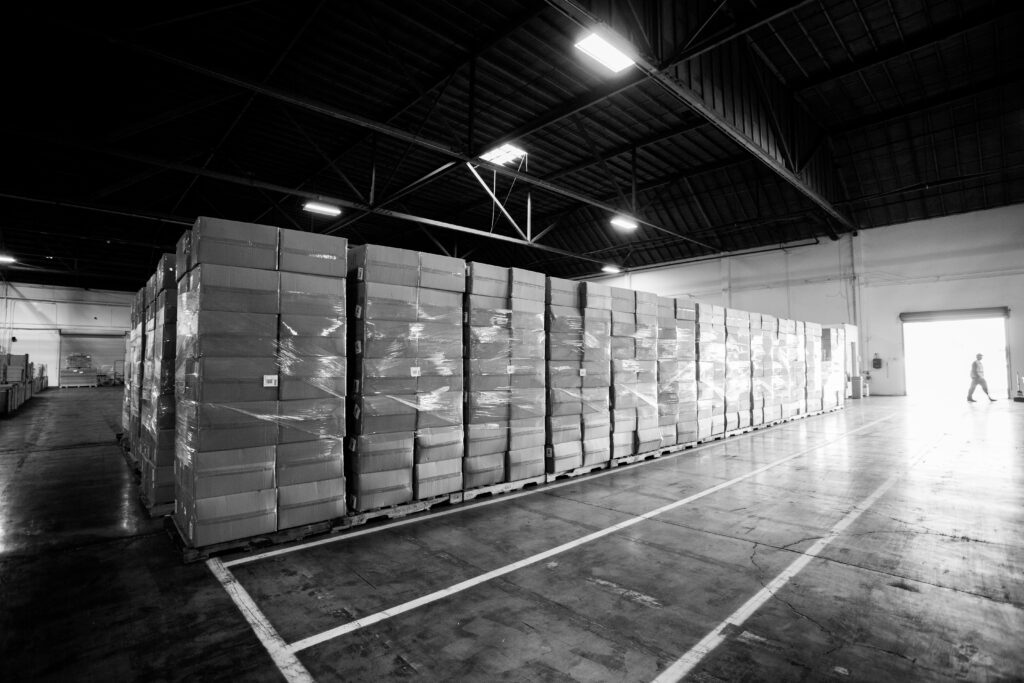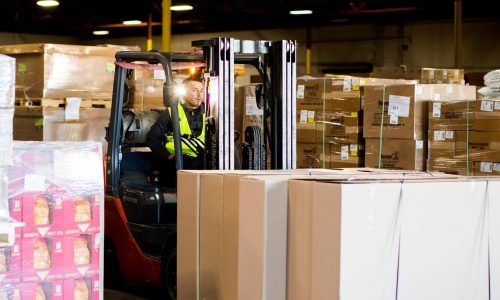4 Obstacles to Overcome When Looking into Pet Food Storage

Roger Nunn
Head of Sales & Strategy
Safe and secure storage of products is essential for pet food manufacturers and distributors. However, several obstacles need to be overcome when storing pet food products.
These obstacles can create challenges for manufacturers and distributors in maintaining the quality of their products and delivering them to their customers in optimal condition.
This article will identify and discuss four of the biggest obstacles manufacturers and distributors face when looking into pet food storage.
We will cover issues such as storage space limitations, compliance with regulations and safety standards, contamination risks and pest control, and effective inventory management.
By understanding these challenges and exploring possible solutions for them, manufacturers and distributors can better prepare themselves to store and distribute pet food products effectively- ensuring the safety and quality of their products.

Obstacle 1: Storage Space Limitations
One of the biggest challenges concerning pet food storage is the storage space limitation. Much like any other product, pet food requires a proper environment that can accommodate the quantity and type of product. Inadequate space can lead to cluttered and disorganized storage, creating issues around the warehouse’s safety, efficiency, and productivity.
Logistics and warehousing providers like FDR Warehouse are aware of the storage space challenges that businesses face and can work to provide flexible and scalable solutions. We offer long and short-term freight storage options (not for actual food itself) and value-added services- including palletizing, barcoding, labeling, and shrink wrapping that can help optimize storage space.
To ensure sufficient space for pet food warehousing, businesses should work with their logistics provider to determine the appropriate storage requirements and space allowance for their products. Pet food companies can overcome storage space limitations and ensure their products’ safety and proper storage with the right warehouse solutions.
Obstacle 2: Compliance with Regulations and Safety Standards
Warehouses that handle pet food products must adhere to strict rules to ensure safety and quality. These regulations vary by state and country but typically include guidelines for storage temperature, pest control, cleanliness, and more. You can learn more about the pet food regulations by the FDA to ensure everything is in place.
To ensure compliance with these regulations, warehouse owners must implement strict procedures and protocols for food storage, handling, and transportation.
This may include regular inspections, training for employees, and monitoring of storage conditions to ensure that the products remain high quality. Failure to comply with these regulations could result in fines or legal action- impacting a warehouse’s reputation and bottom line.
Obstacle 3: Contamination Risks and Pest Control
Contamination risks and pest control are significant obstacles faced by warehouses storing perishable items such as pet food-related products. Warehouses must have proper sanitation procedures in place to prevent contamination and the growth of harmful bacteria.
Additionally, pests and insects must be kept in check to ensure product quality. Warehouses must conduct regular inspections and implement safeguards such as sealing entry points, monitoring traps, and regular cleaning to prevent pest infestation. Failure to adequately address contamination risks and pest control can result in significant losses for both the warehouse and the manufacturer.
Obstacle 4: Effective Inventory Management
Effective inventory management is crucial to any warehouse operation, including pet food handling. Pet food storage presents unique challenges, such as the need for specific temperature and humidity levels to maintain product freshness. Other factors, like shelf life, packaging, and product size, must also be considered when managing inventory. Proper inventory management can help reduce waste, improve product quality, and ensure timely deliveries.
To overcome these obstacles, warehouses can implement technology solutions- like inventory management software, and utilize trained personnel to monitor inventory levels and conditions. Establishing clear inventory control procedures and maintaining accurate records is essential to facilitate effective inventory management.

FDR Warehouse, Stockton, CA- A Storage Solution Provider (Not for the Actual Food) for Pet Food Business Owners
FDR Warehouse in Stockton, CA, offers flexible and scalable solutions to meet unique warehousing needs. With extensive warehouse floor space and advanced facilities, FDR Warehouse provides long and short-term freight storage, dispatching, cross-docking, and local transportation.
In addition, We offer value-added services- such as palletizing, barcoding, labeling, and shrink wrapping. Located conveniently near major railways, highways, and ports, our services are centralized for product dispatching and receiving, increasing efficiency, streamlining transportation, and reducing costs.
FDR Warehouse’s 24/7 customer service is always available to help clients. Request a quote at (209) 780-5042 or schedule a time on our calendar.